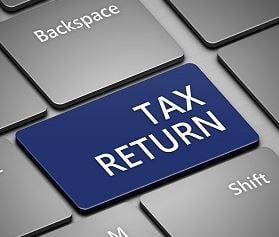

by Richard Reed
11:27 AM, 20th October 2022, About 2 years ago 2
Text Size
Manoj Varsani, founder and CEO at Hammock, the property finance platform for landlords, looks at the implications of the government’s Making Tax Digital initiative.
Everywhere you look and in everything you do, it’s seemingly impossible to avoid reminders of the wider economic downturn and the likelihood of an upcoming recession.
Landlords have mortgages and suppliers to pay. Yet mortgage rates are on the rise and bills are becoming more expensive at a rate that wages are failing to keep pace with.
External factors are the driving force behind the pressures being put on landlords. In such an uncertain and stressful time, there are ways that landlords can gain some financial certainty.
In September, The Bank of England raised interest rates from 1.75% to 2.25%, reaching its highest level for 14 years and marking the seventh increase in a 10-month period from December 2021 when the interest rate stood at 0.1%.
The combination of rising interest rates, market uncertainty and the volatility of the sterling currency is having a consequent impact on mortgage rates, with major lenders returning mortgage deals to market at far higher rates (or even withdrawing mortgage offers altogether).
This is having a drastic impact on homeowners and those looking to enter the property industry for the first time. The estimated 2 million homeowners in the UK on variable-rate mortgages will have an almost immediate rise in monthly repayments. To give an example, a homeowner paying 3.5% interest rate rising to 4% would pay an additional £60 per month on a £200,000 property – a far from insignificant figure when you consider the rising prices in other areas such as energy bills and food prices.
Our latest research found that 30% of landlords do not have real-time visibility of their tax bills. Whilst not directly impacting mortgages and the cost of operating as landlord, it is a strong indication that there is a lack of control in the industry with regards to cash flow monitoring and financial management.
There’s an age-old saying that applies to times of hardship, and it certainly rings true now:
“The only problem you can deal with is the one that you know about.”
With that, the first step to establishing some certainty in managing property finances is to gain visibility of your incomings and outgoings.
Our research also found that a third (33%) of landlords are still using spreadsheets to manage their finances with a further 12% using paper and physical files. As property portfolios diversify and expand, using legacy processes over more comprehensive, real-time digital solutions that are built for purpose runs the risk of making errors and with it the possibility of missing payments, either incoming or outgoing.
In times of financial hardship, every penny counts. Whether you use a spreadsheet, physical files or engage the services of an accountant or an accountancy tool, can you confidently say where all your financial transfers are? Do you know exactly what your incomings and outgoings are on a yearly, monthly, or even weekly basis? How would this be impacted if the process of filing accounts for the purposes of tax submissions changed significantly?
That change is right around the corner.
Not only is property management and acquisition becoming more expensive, but new challenges are also being introduced in the form of Making Tax Digital for income tax self-assessments (MTD for ITSA).
MTD for ITSA will affect all landlords with an annual business or property income of over £10,000. As of April 2024, these landlords will be required to switch from the current annual tax return to quarterly tax assessments plus a final submission, for a total of five submissions a year.
The changes are adding extra work to the already busy schedules of landlords if they are to ensure that they comply with the new requirements and avoid any repercussions in the form of fines and late fees.
Through quarterly submissions, regular updates will provide greater visibility of finances and with it more accurate estimates on total tax due at the end of the financial year. Whilst there is additional work required, the benefit of having a more precise view of finances cannot be understated.
To address the workload concern, a key requirement in MTD for ITSA changes is the use of functional compatible software to submit records to HMRC. This should be seen as a seminal moment that encourages landlords that are using spreadsheets and other manual processes to upgrade to digital, automated tools – saving them time and reducing inaccuracies in the process.
In addition to tax changes, EPC (Energy Performance Certificate) regulations are also going through a period of transition as a heightened focus is placed on improving energy consumption and efficiency. New standards for England and Wales mean that all rental properties will need an EPC rating of C or above, up from the current minimum requirement of a rating of E or above.
The changes required to meet these new standards will see a significant percentage of landlords having to make investments to improve the condition of the interior and exterior of their properties. As with MTD for ITSA, landlords will be open to fines should they fail to comply, adding further financial pressure.
There is no doubt that it is a challenging time for landlords. During times of uncertainty, it is vital for landlords to take control of the factors that they already have an influence over.
Regulation changes and interest rates are in the control of the government and banks. There is very little (if anything) landlords can do to change that.
What landlords can do is ensure they have visibility over their finances. By establishing an in-depth understanding of the sources of income, outgoings, and when they will be paid, calculations can be made to discern the overall impact that changes in interest and tax rates will have on the bottom line.
Previous Article
How to cope with high interest rates
Seething Landlord
9:39 AM, 21st October 2022, About 2 years ago
"the benefit ... cannot be understated"
I suspect that the author has unwittingly said what many of us would wholeheartedly agree with. The same could be said of most government interventions.
Freda Blogs
11:15 AM, 21st October 2022, About 2 years ago
It’s an advertorial for Hammock, nothing more.
Lazy journalism and I’m a bit surprised 118 is carrying it (unless it’s paid to do so).